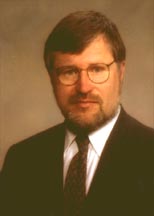A Florida judge passed a death sentence. Time of execution: March 18 at 1:00 p.m. The capital punishment will be meted out not to some terrorist or serial killer but to a young woman whose only crime is being disabled.
Terri Schiavo might get a reprieve, but her parents' legal options to save her life appeared to come to an end on Feb. 25 when circuit court judge George Greer set the date for removal of her feeding tube.
Mrs. Schiavo has been disabled for 15 years due to a heart problem. Mrs. Schiavo cannot speak, but she is responsive, laughing and reacting to voices. Her husband, Michael, wants her dead so that he can marry his girlfriend, and since he is her legal guardian, he has the right to withhold medical treatment for her.
This is not a case of refusing extraordinary medical treatment to just let nature take its course. Mrs. Schiavo is not dependent on any machines. All she needs is a feeding tube to give her nourishment and water. Food and water do not constitute extraordinary medical treatment. It will take over a week for Mrs. Schiavo to die of thirst and starvation. Still, Mr. Schiavo wants her to die and the courts have agreed. And in a breathtaking example of judicial activism, when the Florida legislature passed a law to protect Mrs. Schiavo, the Florida Supreme Court tossed out that law!
But pro-euthanasia forces aren't just using the courts. They're fighting in the culture as well.
Two days after Judge Greer's death sentence, the Academy Awards gave their top prizes to two propaganda films advocating euthanasia. Taking Best Picture, Best Director, Best Actress, and Best Supporting Actor, Million Dollar Baby has a boxing coach showing his love to his daughter-figure by euthanizing her after a disabling accident. Taking the Best Foreign Film award was The Sea Inside, a Spanish movie about Ramón Sampedro, a quadriplegic whose 30-year campaign to end his life made him a hero of the "death with dignity" movement.
Both of these tear-jerkers ramp up viewers' emotions to make euthanasia seem like a loving act. Both of them have sparked protests from people with disabilities who insist that their lives are worth living and who fear for their lives in this new cultural climate. Very often, art is just a little ahead of the culture, anticipating what will become commonplace in the near future.
The sick, the elderly, and the disabled sometimes do ask for death, but that is a cry for help. They need treatment for their pain, emotional support from people who care about them, and a way to find meaning in their suffering. Christianity can provide that meaning with the message of the God who shares their suffering in the cross of Jesus Christ. One does not have to be Catholic to appreciate the pope's modeling of the "spirituality of suffering" in his last days.
In the meantime, laws are designed to protect, particularly those in greatest need of protection, such as the sick and the aged. If euthanasia becomes legal, the pressure to put it into widespread practice will intensify, especially given the looming health-care and Social Security crisis.
And now in a perfect storm of euthanasia-related developments—the same week as the Schiavo decision and the euthanasia-fest at the Oscars—the Supreme Court, which refused to hear an appeal from Mrs. Schiavo's parents, announced that it will rule on Oregon's law permitting physician-assisted suicide. The Bush administration filed suit to overturn the law, under which 171 people have died. The administration argues that allowing physicians to kill people by lethal injection violates federal laws against administering fatal drugs.
If the Supreme Court strikes down Oregon's law, that will be a pro-life victory. But if the court holds that it passes constitutional muster, the precedent will be set, with other states set to pass similar laws. California already has a bill waiting in the wings. Euthanasia enjoys a perverse popularity in the United States. Polls indicated that some 60 percent of Americans support active euthanasia—not just "letting someone die" but actively killing the sick. The case, Gonzales v. Oregon, may well become euthanasia's Roe v. Wade.
